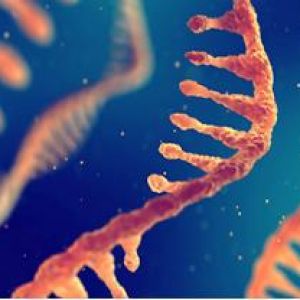CAR-T Cell Therapy & Surgery for Solid Tumor Treatment: The Whole is Greater Than Sum of PartsPosted by Candy Swift on February 7th, 2023 The past decade has witnessed ongoing progress in immune therapy to ameliorate human health. As an emerging technique, chimeric antigen receptor (CAR) T-cell therapy has the advantages of specific killing of cancer cells, a high remission rate of cancer-induced symptoms, rapid tumor eradication, and long-lasting tumor immunity, opening a new window for tumor treatment. CAR T cell therapy works by reprogramming patients' own immune cells to attack their tumor cells. A recent study conducted by researchers in the Perelman School of Medicine at the University of Pennsylvania found that this therapy may also enhance the effectiveness of surgery for solid tumors. The study is published in Science Advances on Jan. 11, 2023, titled “Chimeric antigen receptor T cells as adjuvant therapy for unresectable adenocarcinoma”, and reports that the research found a method to allow the mice to survive the tumor recurrence. Surgery is highly effective if the solid tumor has not spread. The main obstacle is that during the surgery, it’s usually hard for surgeons to clearly distinguish a tumor from the surrounding healthy tissues. Thus, post-surgical recurrence due to remaining microscopic tumor cells is common. The research team tried to find an answer to this obstacle with an eye to applying an anti-tumor treatment to kill any residual tumor cells immediately after tumor removal, and they tested with CAR T cells for two cancer types: triple-negative breast cancer (TNBC), which lacks all of the three major breast cancer markers, and pancreatic ductal adenocarcinoma (PDA), the most common type of pancreatic cancer. Both types are notoriously hard to cure. The CAR T cells were engineered to home in on the protein mesothelin, a surface marker on both types of tumor cell in the experiments. Without the CAR T cell and fibrin gel, the remaining tumor tissue grew and the mice succumbed within about seven weeks. With the gel, however, residual tumor tissue swiftly disappeared in 19 of 20 mice, and these animals survived without wound-healing complications or other apparent side effects for the remainder of the observation period. Further experiments showed that CAR T cells targeting mesothelin have the potential to attack healthy cells bearing that protein marker after intravenous injection, and the toxicity was decreased by local injection of the CAR T cells compared to direct injection of the cells into the blood. “This study demonstrates the promise of CAR T as an add-on to surgery for solid tumors. And this approach can be broadened to deliver other cellular therapies and anticancer agents in addition to CAR T cells, potentially boosting the antitumor effectiveness even further.” commented a scientist at Creative Biolabs, a biotech company providing TCR and CAR T therapy development services as well as ready-to-use TCR and CAR T&NK cell construction products. Researchers all over the world are trying to enhance the effectiveness and safety of CAR T-cell therapy, and it’s believed that this direction will be a big step toward curing cancer. Like it? Share it!More by this author |


